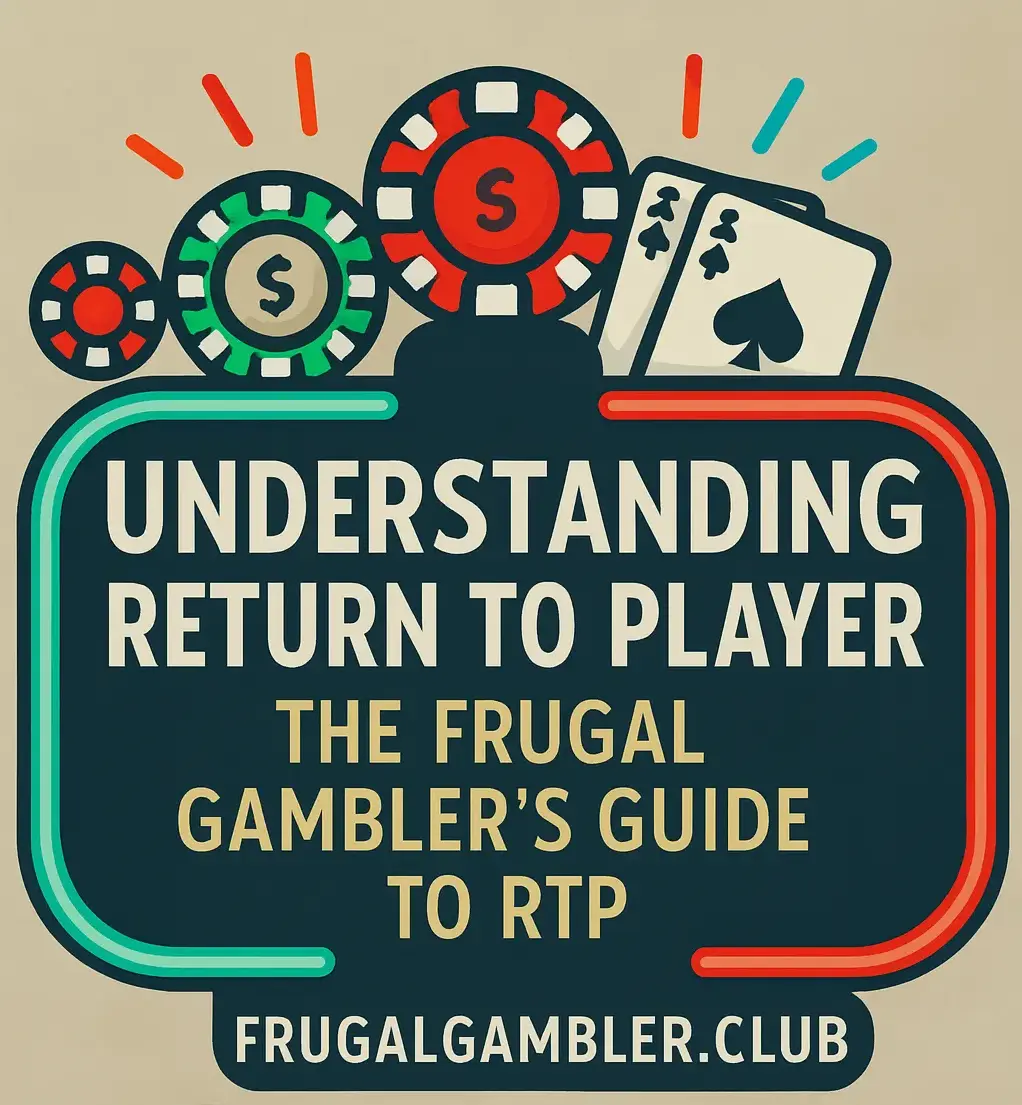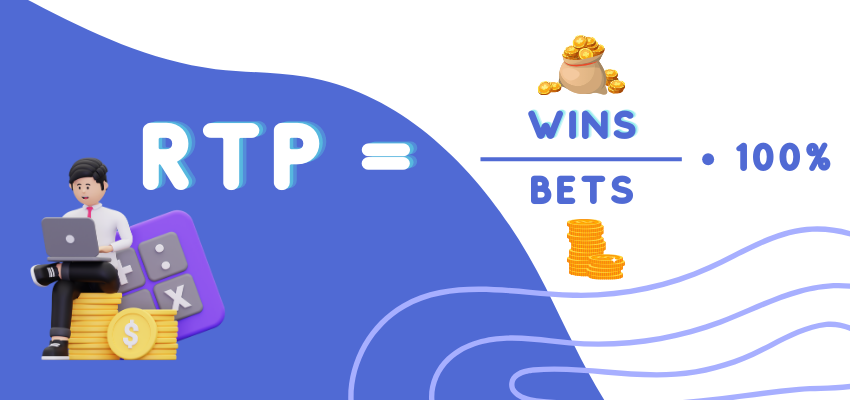Understanding Return to Player: The Frugal Gambler’s Guide to RTP

RTP RTP RTP, you hear it all the time when talking about casinos. But what does it actually mean and how does it work? If you could peek behind the curtain of every slot machine or online casino game, youâd find one number quietly deciding how much of your money comes back: RTP, short for Return to Player. RTP is the percentage of total money wagered on a game that is expected to be returned to players over time. Itâs not a guess or marketing term, itâs a mathematical measurement of how generous (or stingy) a game is. The Frugal Gambler will break down more about it and how you can use it to your advantage.
What Is RTP?
RTP stands for Return to Player. Simply put, it means the amount of every $1.00 that is paid out to players on a specific game.
- A game with 96% RTP pays back $96 for every $100 wagered, on average, over the long run.
- The casino keeps the other $4 â thatâs their built-in profit margin, known as the house edge.
Expert gamblers use RTP as much as they can to give them an edge against the house. Since Frugal Gambler's focus on taking advantage of casino's marketing opportunities to win money, it's not a required aspect to our strategy, but it can give you another tool in your arsenal. Adding in an RTP strategy and playing games that give you the best bang for you buck can help you improve your margins
The Math Behind RTP
Every game you play at a casino, online or in person, is built on mathematical probabilities. The developers of games set the odds of each possible outcome for a specific game. The RTP is the result of all of those probabilities averaged out over millions of rounds of gameplay. It's important to note that RTP does not apply to you individually, it's spread out across all of the players of a specific game.
Here's an example:
- A slot or table game might have 1,000 possible combinations.
- Each spin, hand or game triggers a Random Number Generator (RNG) that decides which combination lands.
- After simulating those spins millions of times, the average payout is measured, and thatâs the theoretical RTP.
Now don't think casino game developers can just post any RTP they want from their own testing. Casino games are audited by independent testing agencies such as eCOGRA, iTech Labs, and Gaming Laboratories International. These companies testing ensures every game you play at a casino is fair and random.
Explaining House Edge and The Long Game
When discussing RTP it's important to talk about the House Edge. Think of the house edge as the other side of the coin, it's the profit margin for the casino. If roulette has an RTP of 97.1%, it means the house edge is 2.9%. That means every time you play a game of roulette the house as a 2.9% statistical advantage against you. When you initially look at these percentages it can give the impression that you should be winning very frequently, but it's important to remember that this is averaged out over millions of spins across a huge amount of players. So when one player hits a big, fat, huge, massive jackpot that you can only dream of winning, that's heavily skews the RTP back to it's average.
RTP is a marathon, not a sprint. Even if you put $1,000 into a game, it's entirely possible to never hit a bonus or big win and lose all of your money very quickly. RTP is the average expectation, not a guarantee of results. You'll often hear players say things like "this slot is hot!", "This slot hasn't hit in a while so it's due" or "Change your bet amount, it's about to hit". The reality is none of these things happen. Each and every spin is running a random number generation to determine the outcome of that play. It's math being math. Unpredictably, but fairly.
What is Volatility and How Does it Work with RTP?
If you've played at any online casinos, you've probably noticed that a lot of casinos rate their games by volatility. Volatility is the frequency that wins are distributed to winners and the size of those wins. Low volatility games give out a lot of small wins frequently, medium volatility games give moderate wins at a steady pace, and high volatility games rarely hit but provide big wins. A lot of older slot games fall into the low volatility category while many newer games trend toward high volatility. As Frugal Gamblers, we tend to stay in our lane and play low or medium volatility slots most of the time.
RTP by Game Type
We've talked a lot about the technical aspects of RTP, now let's dive into some more practical information. Let's break down some average RTP ranges for different game types:
- Online Slots - 94%â98% - Volatility is a big factor with slots
- Blackjack - 99%+ (with basic strategy) - Has the best odds at casinos
- Baccarat - 98.9% (banker bets) - Low house edge with simple rules
- European Roulette - 97.3%- Much better than American Roulette (94.7%)
- Video Poker - Up to 99.9% - Skill-based and great for value players
- Scratch Cards & Instant Games - 80â90% - You may as well play the lottery
If you're like me and like to play slots, you generally want to stay away from high volatility games unless you have a very big bankroll to play with. I also highly recommend mixing in some blackjack, especially if you're just looking to wash your playthrough requirements and cash out quickly.
How to Be a Frugal Gambler with RTP
Alright, now let's get into the gravy and give you some tips to help you use RTP to your advantage. Here are The Frugal Gamblers tips for RTP:
- Check RTP and Volatility before you play. If itâs not listed, look it up
- Avoid low-RTP variants. Anything under 94% usually isnât worth it
- Test volatility in free play mode. Youâll learn how the game behaves without spending real currency
- Stack value and go bigger. Use login bonuses, welcome offers, and deals to build a big bankroll and go after more volatile games with a high RTP. Otherwise play smaller on lower volatility games
- Track your play. Over time, see how your personal return compares and adjust your strategy accordingly. Don't skimp on blackjack and baccarat if you just need to meet playthrough requirements before cashing out
And that's it folks! You know understand how RTP and volatility work together and you're armed with more information to make better decisions and improve your results. If you want to dive into RTP further checkout eCOGRA's blog which has some great information. Otherwise get out there and start collecting login bonuses from your money feed.
And as always, happy spinning!


